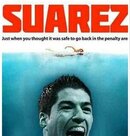I do not believe such an exercise would have any utility. OW classes already do an air depletion exercise, where the diver has his gas turned off by the instructor, and must signal "out of air". I realize that is a staged exercise, and the student is warned it is going to happen, which removes the surprise factor, but I don't think it would change much, anyway, and here is why: Several years ago, after I had been diving for about six years and had about a thousand dives under my belt, as well as a good deal of advanced training involving masks being removed and sometimes gas being turned off without warning, I submerged on a stage to begin a cave dive. About three breaths underwater, I "ran out of gas" -- having been stupid and failed either to turn on the stage or to check it prior to diving. My immediate reaction was to bolt for the surface, and I was astonished at the amount of adrenaline that suddenly poured out into my system. Of course, before I could surface from my four feet or so of depth, I had inhibited the impulse and turned the stage on. But what it taught me is that no amount of harassment training OR experience can stop that initial "Oh, *&#" response to being suddenly deprived of a breathing source underwater. Even if you did the exercise you describe with new divers, you would have no guarantee that a year later, they wouldn't panic if they ran out of gas.






